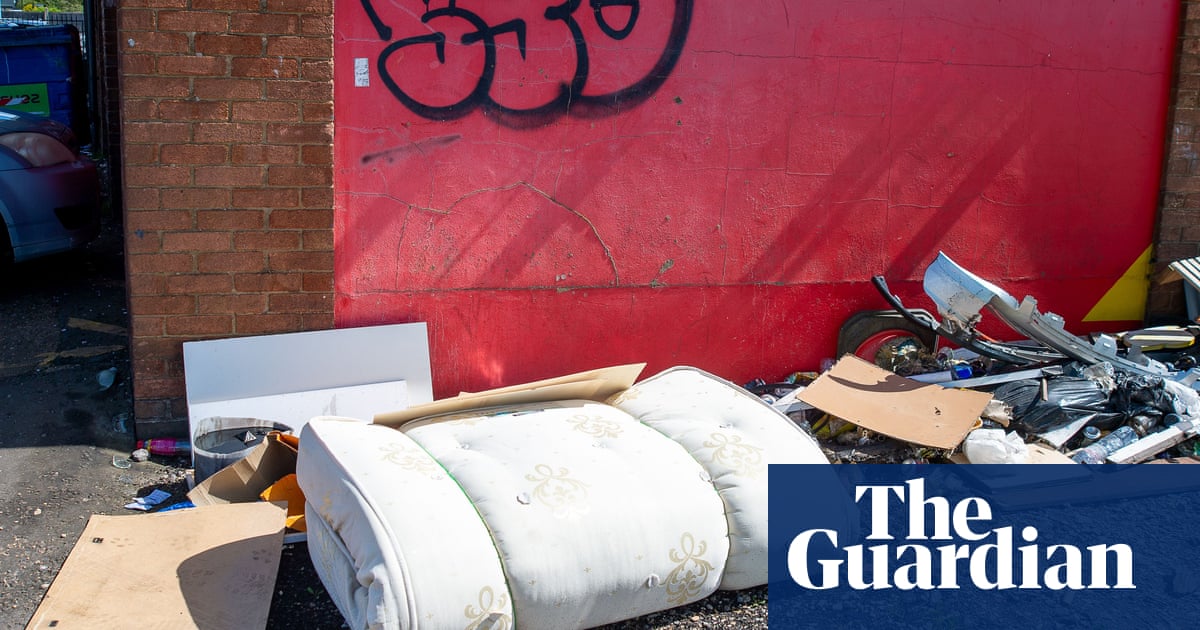Councils will be encouraged to work with police forces to seize and crush vehicles used by fly-tippers, in the latest phase of a government policy blitz before Thursday’s local elections.
Under a scheme being led by the Department for Environment Food and Rural Affairs (Defra), new legislation will impose jail sentences of up to five years for people who illicitly transport waste inEngland.
Fly-tipping, in which people illegally dump rubbish or debris, often by roadsides, rather than taking it to a proper waste site, is commonly listed by voters as a local concern. Governmentstatistics for Englandrecorded 1.15m incidents in 2023-24, up 6% from a year before.
While councils already have the powers to seize and crush vehicles used in fly-tipping, Defra said administrative hurdles mean this is rarely done, with the bulk of such action last year taking place under just two councils.
As well as working with councils to make this easier, local authorities will also be able to charge fly-tippers for the cost of seizing and storing any vehicles. Police will be encouraged to help identify vehicles being used with drones and mobile CCTV cameras.
While rules do not allow new policies to be announced specific to areas where elections are taking place on Thursday, national initiatives are permitted. With Labour expected to face a strong challenge from Reform UK, other new policies have covered topics such as immigration and policing.
To unveil the initiative,Steve Reed, the environment secretary, visited a recycling centre in Wokingham, Berkshire, where a van used in fly-tipping was being crushed.
Reed said: “Waste criminals and fly-tippers who blight our towns and villages have gone unpunished for too long. That ends today. The government is calling time on fly-tipping. I will not stand by while this avalanche of rubbish buries our communities.
“Waste crime is trashing communities across the country. Fly-tipping has skyrocketed by a fifth while the number of prosecutions has fallen by the same amount since 2018-19.
“The failure to punish these criminals has left our high streets, roads and countryside buried under an avalanche of rubbish.”
In a parallel initiative, the Environment Agency will be given extra resources to carry out checks on licensed waste operators, with more powers to revoke permits for rogue companies, as well as fining them.
Philip Duffy, the agency’s chief executive, said: “Waste crime is toxic. Criminals’ thoughtless actions harm people, places, and the economy, blighting our communities and disrupting legitimate businesses.
“We’re determined to bring these criminals to justice through tough enforcement action and prosecutions. That’s why we support the government’s crackdown on waste criminals, which will ensure we have the right powers to shut rogue operators out of the waste industry.”
